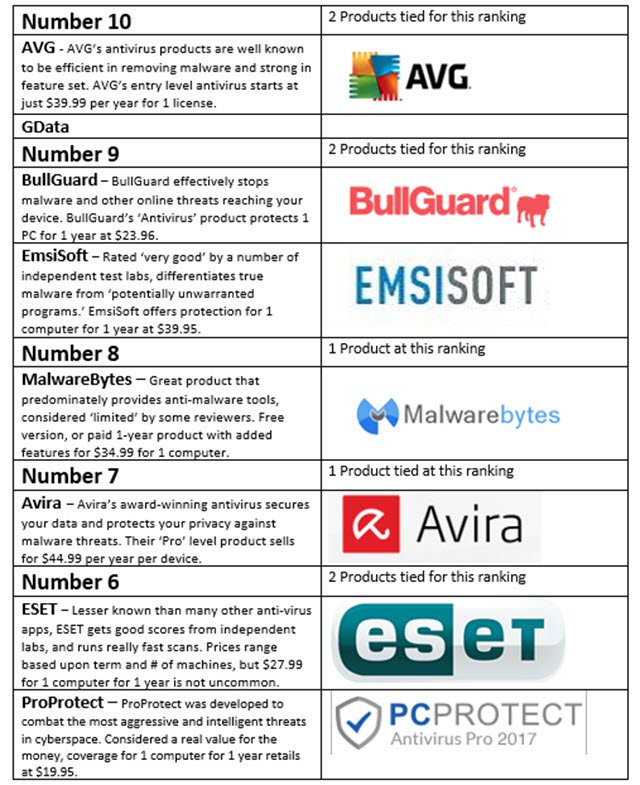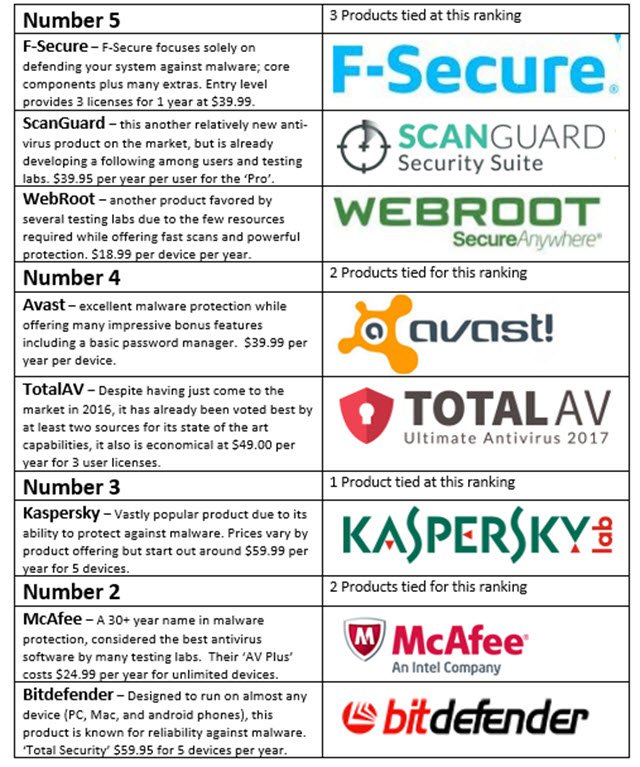Master Windows 10: Top Antivirus Choices

Discover the top antivirus choices for Windows 10 and learn how to protect your computer from cyber threats effectively.
Table of Contents
- Introduction: Keeping Your Windows 10 Safe
- Exploring Windows 10 Security Features
- Understanding Antivirus Software
- Top Antivirus Choices for Windows 10
- How to Install and Update Antivirus Software
- Keeping Safe Online Beyond Antivirus
- Conclusion: Stay Protected with the Right Tools
- FAQs: Questions You May Have About Antivirus on Windows 10
Introduction: Keeping Your Windows 10 Safe
Hey there! Are you a Windows 10 user? If so, it's essential to understand the importance of keeping your system safe and secure. Just like you lock the door to your room to keep your belongings safe, you need to protect your computer from viruses and online threats. In this introduction, we'll discuss why it's crucial to safeguard your Windows 10 system from potential harm. Let's dive in!
First off, let's chat about what exactly Windows 10 is. It's a computer operating system that helps your device run smoothly and efficiently. Think of it as the superhero that protects your computer from villains like viruses that can harm your files and personal information. That's where security and antivirus software come into play. They act as your computer's shield, guarding it against harmful intruders lurking on the internet.
Now, you might be wondering, "What's the big deal about security?" Well, just like you wouldn't leave your bike unlocked outside, you shouldn't leave your Windows 10 system unprotected. Imagine if a virus sneaks into your computer—it could slow it down, delete important files, or even spy on your online activities. That's why keeping your Windows 10 safe is crucial to ensure you have a smooth and worry-free digital experience.
So, whether you're playing games, doing homework, or chatting with friends online, having robust security measures in place is key to enjoying your time on your computer without any interruptions. In the following sections, we'll explore how you can enhance the security of your Windows 10 system, choose the right antivirus software, and pick up some tips to stay safe while surfing the web. Let's get started on this exciting journey to keeping your Windows 10 safe and secure!
Exploring Windows 10 Security Features
When it comes to keeping your Windows 10 system safe, understanding the built-in security features is crucial. Let's dive into the key aspects of Windows 10 security and how to utilize them effectively.
System Update
One of the most important aspects of Windows 10 security is ensuring that your system is always up to date. Regular System updates are vital as they include patches and fixes for vulnerabilities that hackers could exploit. By keeping your Windows 10 updated, you are adding a significant layer of protection to your system.
Security Settings
Windows 10 offers a range of security settings that you can customize to enhance the security of your system. These settings allow you to control things like firewall options, virus and threat protection settings, and app and browser control. By familiarizing yourself with these security settings and adjusting them to your needs, you can further safeguard your Windows 10 system.
Understanding Antivirus Software
Antivirus software is like a shield that protects your computer from harmful viruses. Just like how you wash your hands to keep germs away, antivirus keeps your computer safe from dangerous bugs that can make it sick.

Image courtesy of insightfulaccountant.com via Google Images
Why Do We Need Antivirus?
Imagine if a bug tried to sneak into your house. Just like you lock your doors to keep intruders out, antivirus software helps keep out harmful bugs trying to enter your computer. It scans your computer, finds viruses, and gets rid of them to keep everything running smoothly.
Top Antivirus Choices for Windows 10
When it comes to protecting your Windows 10 system, there are some excellent free antivirus apps available. One popular choice is Avast Free Antivirus. This app provides solid protection against viruses and malware without costing you a penny. Another great option is AVG Antivirus Free, known for its user-friendly interface and reliable virus detection capabilities. If you're looking for a simple yet effective antivirus solution, you can also consider using Bitdefender Antivirus Free Edition.
Paid Antivirus Apps
While free antivirus apps offer decent protection, paid antivirus apps often come with additional features and enhanced security. One top choice is Norton 360 Deluxe, which provides comprehensive protection against all types of online threats. Another popular paid antivirus app is Kaspersky Total Security, known for its strong malware detection rates and advanced security tools. If you're willing to invest in top-notch protection, consider using Bitdefender Total Security, which offers a wide range of security features to keep your Windows 10 system safe from cyber threats.
How to Install and Update Antivirus Software
Installing and updating antivirus software on your Windows 10 system is crucial for keeping your computer safe from viruses and malware. Here is a step-by-step guide on how to ensure your antivirus software is properly installed and up to date.

Image courtesy of insightfulaccountant.com via Google Images
Installing Your Antivirus
1. Choose the antivirus software you want to install. You can select from the various options available, such as McAfee, Norton, or Avast.
2. Visit the official website of the antivirus software you have chosen.
3. Look for the 'Download' or 'Install' button on the website and click on it.
4. Follow the on-screen instructions to download the installer file.
5. Once the file is downloaded, double-click on it to start the installation process.
6. Follow the installation wizard's prompts to complete the installation of the antivirus software.
7. After the installation is finished, restart your computer to ensure the antivirus software is properly integrated into your system.
Updating Antivirus Software
It's not enough to just install antivirus software; you also need to keep it updated to ensure it can effectively protect your computer. Here's how you can update your antivirus software on Windows 10:
1. Open the antivirus software on your computer. You can usually find it in the system tray or by searching for it in the Start menu.
2. Look for the 'Update' or 'Check for updates' option within the antivirus software and click on it.
3. The software will then check for any available updates. If there are updates available, follow the on-screen instructions to download and install them.
4. Some antivirus software may require you to restart your computer after the updates are installed. Make sure to save any work you have open before restarting.
5. Once the updates are installed and your computer has restarted, your antivirus software will be up to date and ready to protect your system against the latest threats.
By following these simple steps to install and update your antivirus software on Windows 10, you can ensure your computer stays safe and secure from online threats.
Keeping Safe Online Beyond Antivirus
While having a reliable antivirus software is essential for protecting your Windows 10 system, there are other important steps you can take to stay safe online. By practicing safe internet habits and adjusting specific settings, you can add an extra layer of security to your online experience.
| Antivirus Program | Features | Pros | Cons |
|---|---|---|---|
| Windows Defender | Real-time protection, firewall, parental controls | Pre-installed on Windows 10, lightweight, low resource usage | Not as many advanced features as third-party alternatives |
| Avast Free Antivirus | Phishing protection, ransomware shield, Wi-Fi inspector | Free version available, frequent updates, high detection rate | Pop-up ads in free version, can be resource-intensive |
| Bitdefender Antivirus Plus | Anti-phishing, ransomware remediation, VPN | Excellent malware detection, low impact on system performance | Full version can be expensive, limited VPN functionality |
Safe Internet Habits
One of the best ways to keep your system safe from viruses is by practicing safe internet habits. Avoid clicking on suspicious links or downloading files from untrustworthy sources. Be cautious of pop-up ads that may contain harmful malware. Remember, just like in real life, it's essential to be careful who you interact with online.
Adjusting Privacy Settings
Adjusting your Privacy settings can also help keep you safe while browsing the internet. By limiting the amount of personal information you share online, you reduce the risk of falling victim to cyber threats. Take the time to review and adjust the privacy settings on your Windows 10 system, as well as on the websites and apps you use regularly.
Conclusion: Stay Protected with the Right Tools
Ensuring your Windows 10 system is safe and secure is essential to keep your computer running smoothly and protect your personal information. By choosing the right antivirus software and implementing proper security measures, you can significantly reduce the risk of malware and cyber threats.
Image courtesy of www.quora.com via Google Images
Choose the Best Antivirus
When it comes to selecting antivirus software for your Windows 10 system, make sure to do some research and choose a reputable program that offers real-time protection, frequent updates, and a variety of security features. Look for options like Bitdefender, Norton, or McAfee, which are known for their reliability and effectiveness in safeguarding your device.
Regularly Update Your Antivirus
Installing antivirus software is just the first step. It's crucial to regularly update your Antivirus program to ensure it can detect and remove the latest threats. Most antivirus applications have an auto-update feature, but it's always a good idea to check for updates manually to stay ahead of potential risks.
Stay Vigilant with Security Practices
While antivirus software plays a significant role in protecting your system, it's also essential to practice safe browsing habits and adjust specific security settings on your device. Avoid clicking on suspicious links or downloading files from unknown sources, and regularly review and update your privacy settings to minimize the risk of cyber attacks.
By combining the right antivirus software with proactive security measures, you can create a robust defense system that keeps your Windows 10 system safe and secure. Remember, staying protected with the right tools is key to enjoying a worry-free computing experience.
FAQs: Questions You May Have About Antivirus on Windows 10
Antivirus software is designed to protect your computer from viruses and other harmful software that can damage your system or compromise your security. While Windows 10 does come with built-in security features, having antivirus software provides an additional layer of protection against threats.
Do I really need antivirus software on Windows 10?
Yes, you do need antivirus software on Windows 10, even though it has its own security features. Antivirus programs are specifically designed to detect and remove various types of malware that may not be covered by Windows Defender or other built-in tools. This extra layer of protection can help keep your system safe from cyber threats.
Can I use more than one antivirus at the same time?
It is not recommended to use more than one antivirus program at the same time. Having multiple antivirus programs running simultaneously can lead to conflicts between them, which may result in decreased performance and overall security. It is best to choose one reliable antivirus software and keep it updated for maximum protection.



